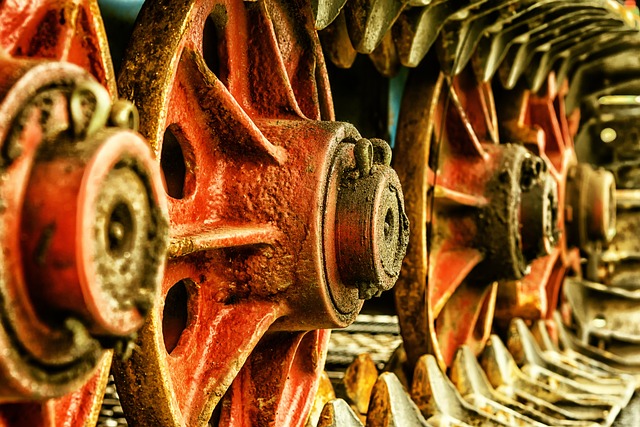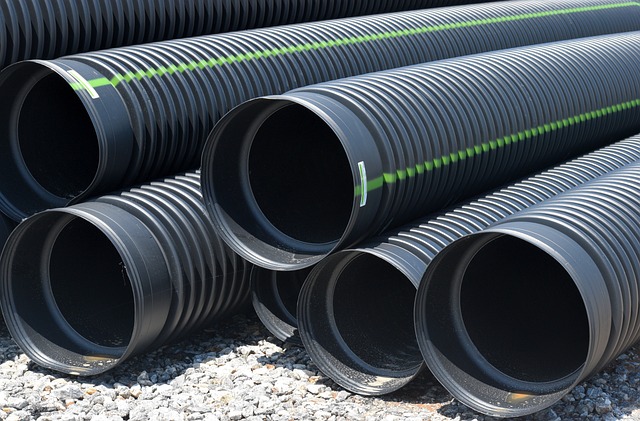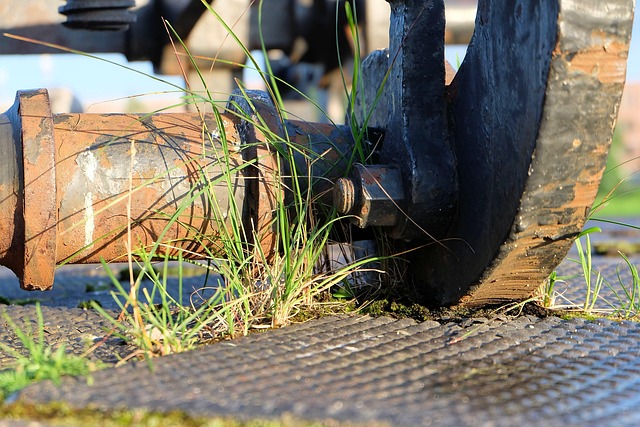Pipes, essential for plumbing systems, are vulnerable to damage due to common causes of pipe corrosion, primarily moisture exposure and chemical reactions with water containing dissolved minerals or acids. High mineral content (hard water) accelerates rust formation on metal surfaces. Outdated pipes lacking protective coatings or modern corrosion-resistant materials are significant contributors. Early identification of rust is crucial for preventing structural damage; look for signs like peeling paint, wall stains, pressure changes, or unusual noises. Regular maintenance and quick action can extend plumbing lifespan, avoiding expensive corrosion-related repairs. Understanding common causes, such as water quality (hard water), age, and poor ventilation, is key to both prevention and effective remediation of pipe corrosion.
Are your pipes rusting faster than you can keep up with? It’s not just an eyesore—pipe corrosion is a serious issue that can lead to costly repairs. In this article, we’ll delve into the real reasons behind pipe corrosion and explore common causes like water quality, age, and material composition. We’ll equip you with knowledge on identifying rust damage and provide effective preventive measures along with reliable repair solutions. Say goodbye to rusty pipes once and for all!
- Understanding Pipe Corrosion: Common Causes
- Identifying the Damage: Signs of Rust in Pipes
- Preventive Measures and Repair Solutions for Rusty Pipes
Understanding Pipe Corrosion: Common Causes

Pipes are essential components of any plumbing system, but they’re not immune to damage over time. Understanding the common causes of pipe corrosion is key to maintaining a reliable and efficient plumbing network. The primary culprit behind rusted pipes is their exposure to moisture and varying levels of chemical corrosion. This process accelerates when metal pipes come into contact with water that contains dissolved minerals or acids, leading to a gradual breakdown of the material’s integrity.
Various factors contribute to the common causes of pipe corrosion. One significant factor is the quality of water in your area. Hard water, rich in minerals like calcium and magnesium, can accelerate corrosion by forming rust on metal surfaces. Additionally, outdated pipes often suffer from corrosion due to their age, as they may not have been treated with protective coatings or made from modern, corrosion-resistant materials.
Identifying the Damage: Signs of Rust in Pipes

Rusty pipes aren’t just an eyesore; they’re a sign of deeper structural issues within your plumbing system. Identifying rust early is crucial to preventing more severe damage and costly repairs. Keep an eye out for these common signs of pipe corrosion: peeling or flaking paint, especially in older homes, as it often indicates exposed metal; stains on walls or ceilings caused by leaking pipes, which can be a result of rust buildup; and noticeable changes in water pressure, indicating potential blockages or weakened pipes. Additionally, if you hear unusual noises coming from your pipes, like banging or dripping sounds, it could be a sign of internal rust and damage.
The common causes of pipe corrosion include age, poor installation, exposure to moisture, and water quality issues. Metal pipes, especially iron and steel, are particularly susceptible to rust when they come into contact with water over an extended period. Over time, this can lead to weak spots and eventual failure. Ensuring regular maintenance and addressing potential issues promptly can significantly extend the lifespan of your plumbing system and prevent costly corrosion-related damages.
Preventive Measures and Repair Solutions for Rusty Pipes

Rusty pipes are a common household problem, often stemming from several avoidable causes. Understanding these is key to prevention and repair. One of the primary culprits is water quality; hard water with high mineral content accelerates corrosion. Another factor is age; older pipes, especially those made of metal, become more susceptible over time. Poor ventilation in plumbing systems can also lead to rust, as it creates ideal conditions for moisture buildup.
To prevent pipe corrosion, consider using water softeners to reduce mineral levels and ensure proper ventilation throughout your plumbing system. Regular inspection is crucial; identify leaks early and address them promptly. If rust has already set in, don’t panic. There are effective repair solutions like pipe lining, which involves threading a resin-impregnated tube through the corroded pipe to create a smooth interior surface. For severe cases, replacement might be necessary, ensuring you use modern materials designed to resist corrosion.
Rusty pipes are a common household issue, often caused by exposure to moisture, poor ventilation, and outdated pipe materials. Understanding these underlying factors is key to preventing further damage. By implementing preventive measures such as sealing leaks, maintaining proper ventilation, and considering corrosion-resistant materials during repairs or replacements, you can significantly extend the lifespan of your plumbing system. Don’t let rust become a persistent problem; take action now to restore and protect your pipes for years to come.
